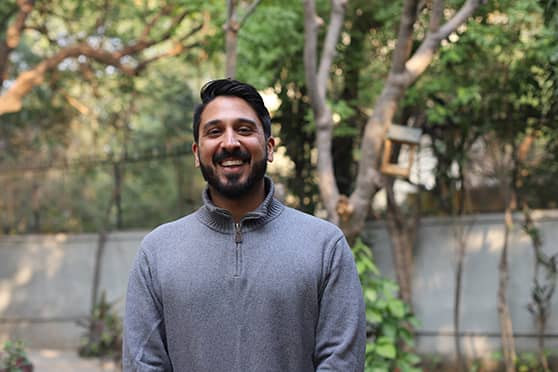Loughborough University alumnus on what to expect in a Sports Management master’s course


An alumnus of Loughborough University in the UK, Suheil Farell Tandon has witnessed how a vibrant sports culture can harmonise social layers by inculcating positive values through sports.
In a Zoom chat with Edugraph, Suheil shared his experience as an overseas student and how he is applying his learnings to promote sports at the grassroots level through his own social enterprise set-up called Pro Sport Development.
Edugraph: What sparked your interest in sports development?
Suheil Farell Tandon: It was during my graduation that I started thinking about exploring what I could do in the sports field. I was lucky enough to get in touch with a few people who guided me in terms of what I could study. One of them actually signposted me to Loughborough University.
What has been your academic journey from India to the UK been like?
Suheil: My time at Woodstock School, an international boarding school in India, had prepared me for studying abroad. I thoroughly enjoyed my time in the UK and actively pursued my passion for sports there. The environment at Loughborough University allowed me to interact with other students who came from different parts of the world.
What did you study at Loughborough?
Suheil: I did my master’s in Sports Management; it’s an MSc degree. I wanted to do something in the sports industry in a managerial capacity. Sports Management gave me extensive insights into how the sports industry works.
How did you go about zeroing in on Loughborough University?
Suheil: I did a lot of research and met with some Loughborough representatives in Delhi before zeroing in on the university.
Sports Management at Loughborough University is taught by some professors who are involved in global research on the sports industry. Loughborough is the world’s best university for Sports Studies and happens to be a professional hub for sports coaching. I considered all these factors before actually applying to the university.
Courses in Sports Management, Sports Science, Sports Nutrition and Sports Psychology are available at Loughborough University and across the UK. Apart from these, Loughborough has a very strong engineering programme and offers a Sports Technology course.
What facilities are available for international students at Loughborough University?
Suheil: The university provides a lot of opportunities for sportspersons — you could be a professional player or an amateur. Anyone could go and play cricket on the grounds and nets that are used by some of the professional players of England when they visit Loughborough. The gyms are excellent and anyone can use them. There are also a lot of opportunities to engage with the student community and participate in cultural events.
What were some of your significant learnings there?
Suheil: I learnt a great deal about sports and how it works. But even more than that, I learnt about the constant innovations and research as well as its practical application in modern sports. The chance to interact with such a diverse set of international students has been invaluable. I learnt a lot about different cultures and sports culture in different countries.
What kind of challenges did you face as an international student?
Suheil: Some cultural differences were inevitable. But I lived on the campus and that made it much easier than living in a big city. With a supportive set of classmates and help from the university, it actually was very comfortable for me. I also learnt the value of punctuality of multitasking there.
Did you do any apprenticeship work in sports at the university?
Suheil: Like all students, I had to do a master’s dissertation. I took it seriously to learn more about research methodology and look into something meaningful that would help me in my future project. Other than that, I got the opportunity to do a bit of coaching at a sports club that had advertised on the university board.
The university would connect you with sports associations and private employers looking for interns and volunteers.
Are there any scholarships that you’d recommend?
Suheil: Loughborough provides international bursaries and I was lucky enough to get one of those. I think the university has a couple of international bursaries per batch. The British Council, too, offers some scholarships. When I went to Loughborough, there was the Chevening Scholarship programme — there is one specifically for pursuing a sports degree. Apart from these, the university itself offers scholarships.
How has your degree in Sports Management helped achieve your dreams in India?
Suheil: I got to know how the sports industry functions in the UK and also got involved in real-life situations outside the classroom. It opened my eyes to the gaps and opportunities in this sector in India. For instance, I realised that India had an abundance of talent but the UK does a better job at identifying and developing talent. That knowledge has helped me to find ways to develop sports at the grassroots in India.
What exactly is the work you do in the field of Sports Management?
SFT: I have founded Pro Sport Development, a social enterprise set-up that works towards the holistic development of young people through sports. We deliver sports-based programmes to young people, mostly from marginalised sections, and also work with various types of facilitators, trainers, sports coaches. Besides, we provide institutions with technical expertise for grassroots sports development projects.
What other avenues are open to those studying Sports Management?
SFT: Sports Management is still an emerging area in India and that means there are ample opportunities to make it big. A Sports Management degree would come handy if you choose a career in event management, marketing, digital media and broadcasting. Then you can also work in the management of professional sports teams. You can also work with the government by working with the Sports Authority of India.